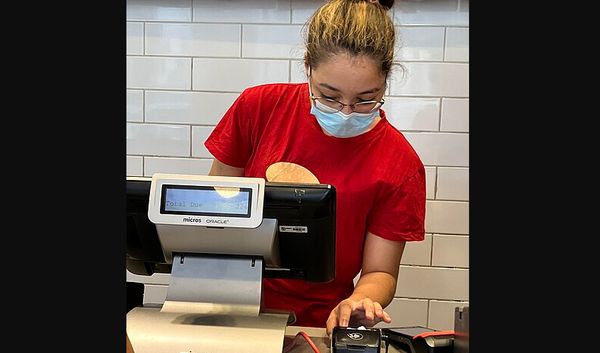
Have you ever left your receipt behind after a purchase? It turns out that some retail and fast food workers are using those forgotten receipts to their advantage. They have discovered a way to scam customers and make some extra money for themselves. So, how exactly are they doing it?
The Fetch App – A Tool for Scammers
The method these workers are using involves a popular cash-back app called Fetch. This app allows users to earn points based on the amount of money they spend at various retailers and fast-food shops. The more points you accumulate, the more rewards you can redeem.

The Receipt Scam
Here’s how the scam works: when customers leave their receipts behind, these workers swoop in and use those discarded receipts to redeem points for themselves. Imagine the sheer number of receipts they can collect over multiple shifts. This allows them to rack up a significant amount of points on the Fetch app, which they can then redeem for various rewards.

A Sneak Peek into the Scam
One Florida Publix grocery store employee, who goes by the TikTok handle @thatgirl.sonti, shared their scam in a now-deleted viral video. They displayed a collection of customer receipts that had been left behind, cleverly captioned, “Me when you all say you don’t want y’all receipt back.”
The video caught the attention of many, highlighting how these grocery store workers were essentially stealing from customers by using their forgotten receipts to redeem rewards on cash-back apps like Fetch.
Scammers Caught in the Act
Other TikTok videos surfaced, featuring McDonald’s and smoothie store employees from Florida, proudly displaying the pile of receipts they had accumulated. It seemed they were planning to use these receipts to request vouchers from Fetch.

The Value of Their Scam
While the exact amount of money these scam artists are making remains uncertain, it seems that redeeming a $25 reward requires collecting upwards of $3,000 in receipts. A significant effort, to say the least.
Public Reaction
Viewers were quick to express their opinions on these cashier hacks. Many sympathized with the workers, recognizing the financial desperation that might drive someone to resort to such tactics. Others pointed out the time and effort it takes just to earn a $10 or $25 gift card, highlighting the futility of the endeavor.

The Big Question
So, what do you think? Should retail workers be taking customers’ receipts to redeem for cash rewards? It’s a moral quandary that certainly sparks debate.
One thing is certain: this cashier scam serves as a reminder to always take your receipts after a purchase, lest your forgotten receipt becomes someone else’s ticket to free rewards.






